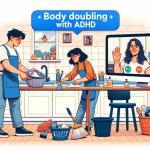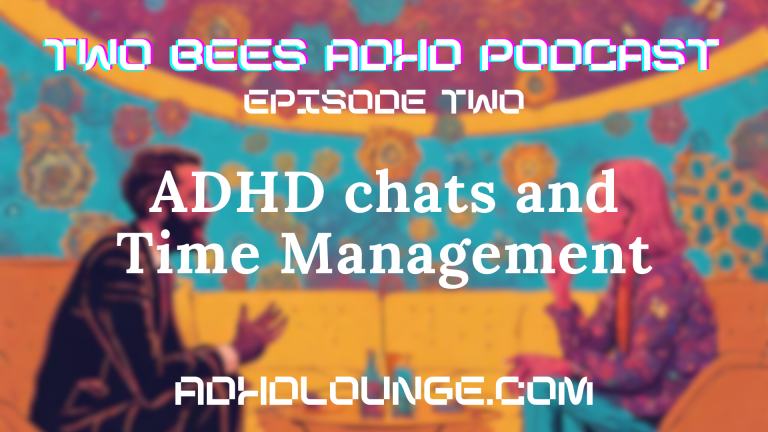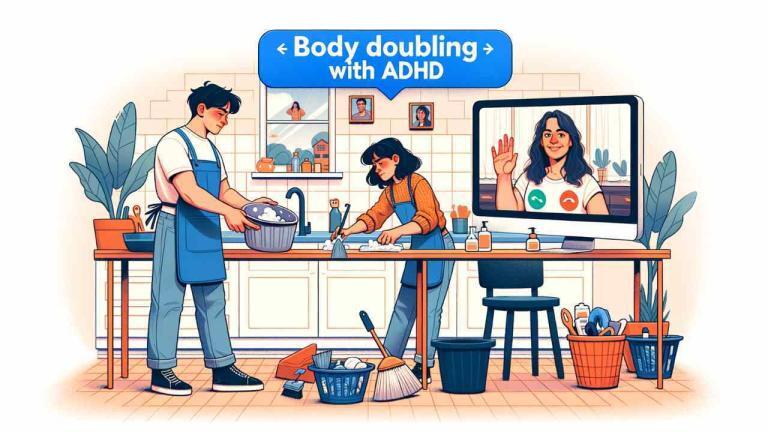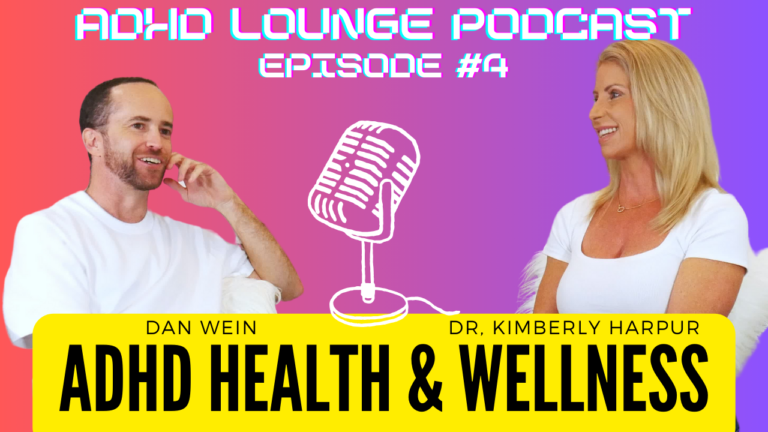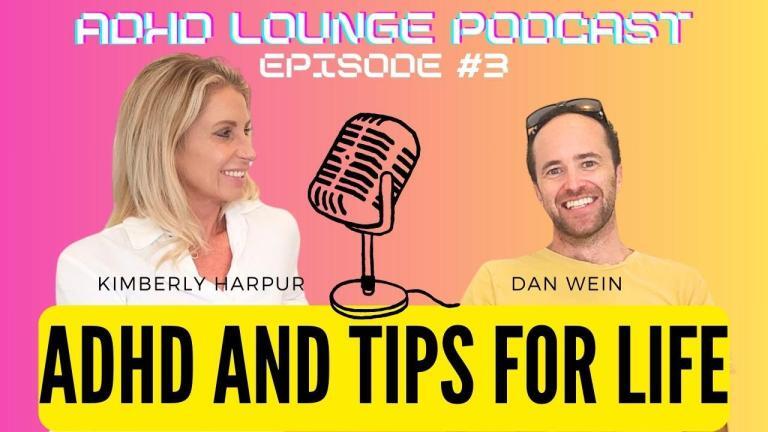The Best Guide for Processing Grief with ADHD

Processing grief can be a challenging experience for anyone, but for individuals with ADHD, it can present unique obstacles and complexities. In this article, we delve into the impact of ADHD on the grieving process and explore strategies to help individuals navigate this difficult emotional terrain.
Understanding the specific challenges that individuals with ADHD face when grieving is essential in providing them with the support they need. This article aims to shed light on the ways in which ADHD can influence grief and mourning, offering insights and practical tips that can help individuals with ADHD bounce back while navigating through their grief journey.
Whether you have ADHD yourself, or you are supporting someone with ADHD who is grieving, this article will provide valuable information and strategies to help you better understand and address the impact of ADHD on processing grief. Let’s explore this topic together and discover the tools to foster healing and resilience.
Processing emotions is a complex task, and individuals with ADHD often face additional challenges in this area. ADHD can impact the regulation and expression of emotions, making it harder for individuals to navigate the grieving process.
One common characteristic of ADHD is impulsivity, which can manifest as impulsive emotional responses. This means that individuals with ADHD may experience intense emotional reactions to grief triggers, such as a sudden outburst of anger or sadness. These intense emotions can be overwhelming and may hinder the grieving process.
Inattentiveness is another characteristic of ADHD that can affect emotional processing. Individuals with ADHD may find it difficult to focus on their emotions and may struggle to identify and articulate their feelings. This can create a sense of confusion and frustration, as they may have difficulty understanding why they are feeling a certain way.
Hyperactivity, the third characteristic of ADHD, can also impact the grieving process. Hyperactive individuals may have difficulty sitting still and may seek constant stimulation to distract themselves from their grief. This avoidance behavior can prevent them from fully engaging with their emotions and hinder the healing process.
Understanding these challenges is crucial in supporting individuals with ADHD who are grieving. By recognizing and validating their unique emotional experiences, we can help them navigate the grieving process in a way that is tailored to their needs.
Grieving is a complex and deeply personal process, and individuals with ADHD may encounter specific challenges along their grief journey. Here are some common difficulties that individuals with ADHD may face when grieving:
- Difficulty with focus and attention: Individuals with ADHD may find it challenging to sustain focus on their grief-related thoughts and feelings. Their minds may wander, and they may struggle to stay present in the grieving process. This can lead to feelings of frustration and a sense of detachment from their own grief.
- Impulsive emotional reactions: ADHD can contribute to impulsive emotional responses, which can make grieving feel overwhelming. Individuals with ADHD may experience sudden and intense emotional outbursts that are difficult to control. This can lead to feelings of guilt or shame, as they may worry about the impact of their emotions on those around them.
- Procrastination and avoidance: Individuals with ADHD may have a tendency to procrastinate or avoid tasks that are emotionally challenging. When faced with the need to confront their grief, they may engage in behaviors that distract or numb themselves, such as excessive work, excessive exercise, or substance use. This avoidance behavior can delay the healing process and hinder emotional growth.
By recognizing these challenges, we can provide individuals with ADHD the support they need to navigate their grief journey. In the next section, we will explore strategies to help manage grief when ADHD is in the picture.
Managing grief with ADHD requires a tailored approach that takes into account the unique challenges individuals with ADHD face. The following strategies can help individuals with ADHD navigate their grief journey more effectively:
- Create a structured grieving routine: Establishing a structured routine can provide individuals with ADHD a sense of stability and predictability during the grieving process. This routine can include regular times for reflection, self-care activities, and engagement with support networks. By incorporating grieving activities into their daily routine, individuals with ADHD can develop a sense of control and stability.
- Utilize visual aids and reminders: Individuals with ADHD often benefit from visual cues and reminders to stay on track. Utilize visual aids such as calendars, to-do lists, and reminders on electronic devices to help individuals with ADHD remember important grieving tasks and activities. These visual aids can help them stay focused and engaged in their grief journey.
- Practice mindfulness and grounding techniques: Mindfulness and grounding techniques can be particularly helpful for individuals with ADHD when processing grief. These techniques can help individuals stay present in the moment and manage intense emotions. Encourage individuals with ADHD to engage in breathing exercises, meditation, or other mindfulness practices to help regulate their emotions and create a sense of calm during the grieving process.
- Break tasks into smaller, manageable steps: Individuals with ADHD may feel overwhelmed by the magnitude of the grieving process. Breaking tasks into smaller, more manageable steps can help individuals with ADHD stay focused and motivated. By setting small goals and celebrating each accomplishment, individuals with ADHD can maintain momentum and make progress in their healing journey.
- Engage in physical activity: Physical activity can be a powerful tool for managing grief and ADHD symptoms. Encourage individuals with ADHD to engage in regular exercise, as it can help reduce hyperactivity, improve focus, and release endorphins that promote emotional well-being. Activities such as walking, yoga, or dancing can be particularly beneficial for individuals with ADHD.
By incorporating these strategies into their grief journey, individuals with ADHD can develop effective coping mechanisms and foster resilience in the face of loss. Seeking professional support is also an essential component of managing grief with ADHD.
Therapy and counseling can provide individuals with ADHD the support they need to navigate the grieving process effectively. Here are some therapy options that can be beneficial for individuals with ADHD and grief:
- Cognitive-behavioral therapy (CBT): CBT is a widely used therapy approach that can help individuals with ADHD identify and challenge negative thought patterns and behaviors related to grief. It can provide practical strategies for managing emotions, improving focus, and developing healthy coping mechanisms.
- Grief counseling: Grief counseling specifically focuses on helping individuals navigate the grieving process. Grief counselors can provide a safe and supportive space for individuals with ADHD to explore their emotions, develop coping strategies, and find ways to honor their loved ones.
- Support groups: Joining a support group can be immensely helpful for individuals with ADHD who are grieving. Support groups provide an opportunity to connect with others who have had similar experiences and can offer understanding and empathy. Sharing stories and strategies can foster a sense of belonging and validation.
It’s important to note that therapy and counseling approaches can be tailored to the individual’s specific needs and preferences. Working with a mental health professional can provide valuable guidance and support throughout the grieving process.
Self-care is crucial for individuals with ADHD who are navigating the grieving process. Taking care of one’s physical, emotional, and mental well-being can provide the necessary resources to cope with grief and build resilience. Here are some self-care practices that can be beneficial for individuals with ADHD and grief:
- Establish a sleep routine: Adequate sleep is essential for emotional well-being. Individuals with ADHD often face challenges with sleep, so establishing a consistent sleep routine can be particularly helpful. Creating a relaxing bedtime routine, avoiding stimulants before bed, and optimizing the sleep environment can contribute to better sleep quality.
- Engage in creative outlets: Creative outlets, such as painting, writing, or playing a musical instrument, can provide individuals with ADHD a means to express and process their grief in a nonverbal way. Engaging in creative activities can be therapeutic and help individuals connect with their emotions on a deeper level.
- Practice relaxation techniques: Learning and practicing relaxation techniques, such as deep breathing exercises, progressive muscle relaxation, or guided imagery, can help individuals with ADHD manage anxiety and stress associated with grief. These techniques can provide a sense of calm and promote emotional well-being.
- Maintain a balanced diet: A well-balanced diet can contribute to overall health and well-being. Individuals with ADHD may benefit from foods that support brain function, such as omega-3 fatty acids found in fish, nuts, and seeds. Avoiding excessive sugar and caffeine intake can also help regulate energy levels and support emotional stability.
By incorporating these self-care practices into their daily lives, individuals with ADHD can nurture their well-being and build resilience as they navigate the grieving process.
Support from friends and family is crucial during the grieving process, especially for individuals with ADHD. Here are some tips for building a strong support network for individuals with ADHD who are grieving:
- Educate yourself about ADHD: Understanding the unique challenges that individuals with ADHD face can help you provide more effective support. Educate yourself about ADHD, its symptoms, and its impact on emotional processing. This knowledge will enable you to offer empathy and validation to individuals with ADHD who are grieving.
- Be patient and non-judgmental: Grief can manifest differently in individuals with ADHD. Be patient and non-judgmental, allowing individuals with ADHD to express their emotions in their own way and at their own pace. Avoid making assumptions or imposing expectations on their grieving process.
- Listen actively and validate their experiences: Active listening and validation are powerful ways to support individuals with ADHD who are grieving. Give them space to share their emotions and experiences, and validate their feelings by acknowledging their pain and offering empathy. This validation can help individuals with ADHD feel understood and supported.
- Offer practical assistance: Individuals with ADHD may struggle with tasks related to grieving, such as organizing memorial services or managing paperwork. Offer practical assistance, such as helping with logistics, providing transportation, or assisting with administrative tasks. These acts of support can alleviate some of the stress associated with grieving.
- Encourage professional support: Encourage individuals with ADHD to seek professional support, such as therapy or counseling. Offer to help them find a mental health professional who specializes in ADHD and grief. Assure them that seeking professional help is a sign of strength and self-care.
By building a supportive network and providing understanding and validation, friends and family can play a crucial role in helping individuals with ADHD navigate the grieving process.
Education and awareness about ADHD and grief are essential in promoting understanding and support for individuals facing these challenges. By increasing awareness, we can reduce stigma and create a more inclusive and compassionate society. Here are some ways to promote education and awareness about ADHD and grief:
- Share personal stories and experiences: Personal stories and experiences can be powerful tools for increasing awareness and empathy. Encourage individuals with ADHD who have experienced grief to share their stories, either through writing, speaking engagements, or online platforms. By sharing their experiences, they can help others understand the unique intersection of ADHD and grief.
- Organize workshops and support groups: Organize workshops and support groups specifically tailored to individuals with ADHD who are grieving. These events can provide a platform for sharing knowledge, experiences, and coping strategies. They can also foster a sense of community and support among individuals facing similar challenges.
- Advocate for inclusive grief support: Advocate for inclusive grief support that takes into account the specific needs of individuals with ADHD. This can include raising awareness among mental health professionals, educators, and policymakers about the impact of ADHD on the grieving process. By advocating for inclusive support, we can ensure that individuals with ADHD receive the care and understanding they need.
By promoting education and awareness, we can create a more compassionate and supportive society for individuals with ADHD who are grieving.
Personal stories and experiences can provide valuable insights into the impact of ADHD on the grieving process. Here are some personal stories from individuals with ADHD who have navigated grief:
Story 1: Finding Strength through Creativity
“My ADHD made it difficult for me to process my grief. I struggled with focusing on my emotions and often felt overwhelmed. However, I discovered that engaging in creative activities, such as painting and writing, provided an outlet for my emotions. These creative outlets allowed me to express and process my grief in a way that felt natural to me. Creativity became my strength during the grieving process.”
Story 2: Seeking Support and Validation
“Grieving with ADHD felt isolating at times. I often struggled to articulate my emotions and felt misunderstood. Seeking therapy and joining a support group specifically for individuals with ADHD and grief changed my perspective. Connecting with others who shared similar experiences and challenges provided validation and support. It was empowering to know that I was not alone in my journey.”
Story 3: Embracing Self-Care and Resilience
“Grief and ADHD both presented unique challenges in my life. I learned that practicing self-care was essential for my well-being. Engaging in regular exercise, maintaining a consistent sleep routine, and seeking therapy were crucial in managing my grief and ADHD symptoms. Through self-care and resilience, I found the strength to navigate my grief journey.”
These personal stories highlight the diverse experiences of individuals with ADHD who are grieving. By sharing these stories, we can foster empathy, understanding, and support for individuals facing similar challenges.
Grieving is a complex process, and individuals with ADHD may face unique challenges along their grief journey. However, with understanding, support, and the implementation of effective strategies, individuals with ADHD can find hope and resilience in the face of grief.
By recognizing the impact of ADHD on emotional processing, we can provide individuals with the tailored support they need to navigate their grief journey. Strategies such as creating structured routines, practicing mindfulness, and seeking professional help can help individuals with ADHD manage their grief more effectively.
Building a strong support network and promoting education and awareness about ADHD and grief are essential in fostering a compassionate and inclusive society. By sharing personal stories and experiences, we can increase understanding and empathy



